Vowel Recognition Normal Phonics Worksheets for Ages 7-8
10 filtered results
-
From - To
Enhance your child's phonics skills with our engaging Vowel Recognition Normal Phonics Worksheets, designed for ages 7-8. These worksheets provide fun, interactive activities that reinforce vowel identification, helping young learners master the essential building blocks of reading. Each worksheet is carefully crafted to engage students through various exercises, including matching, filling in the blanks, and vowel sorting. By practicing with these materials, children will grow more confident in their reading abilities and develop a strong foundation in literacy. Perfect for both home and classroom use, these worksheets make learning vowels an enjoyable and effective experience. Start your child’s phonics journey today!


Let's Check Long Vowels: Assessment Worksheet
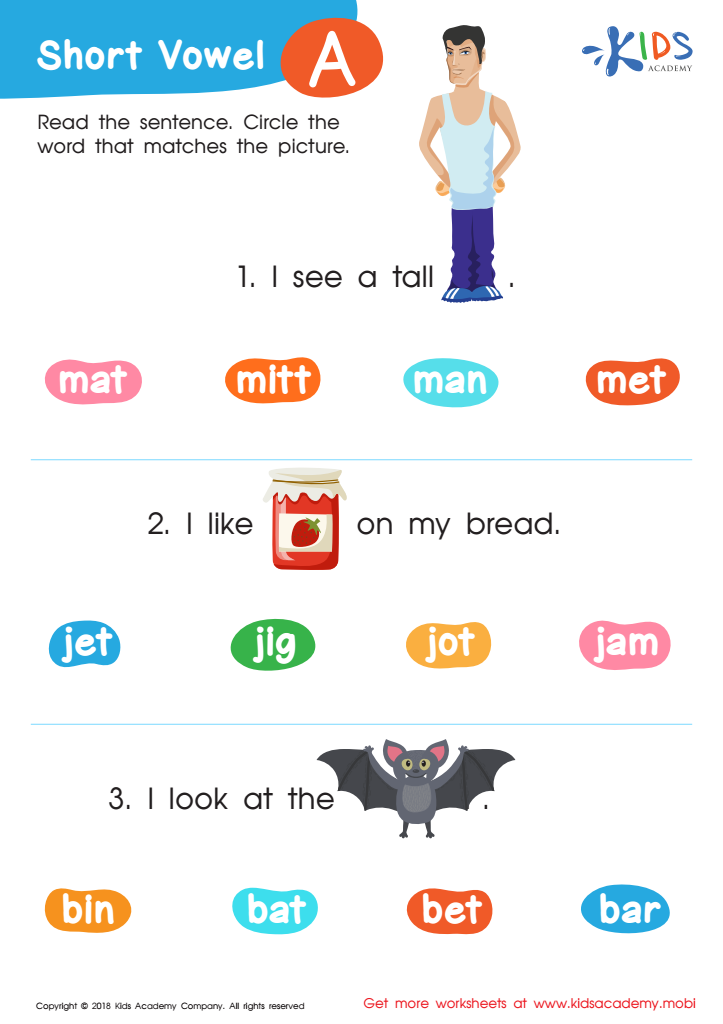

Short Vowel /a/ Worksheet


Short Vowels /e/, /i/, and /u/ Worksheet
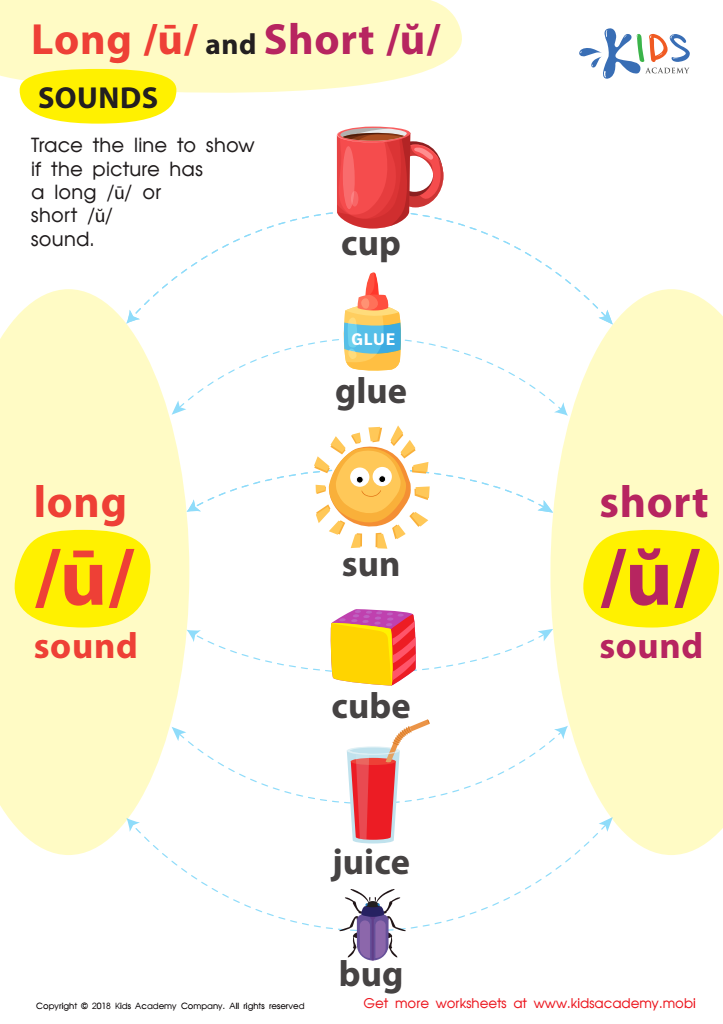

Reading: Long U and Short U Sounds Worksheet


Long Vowel Maze /o/ and /i/ Worksheet


Short Vowel Eggs Worksheet
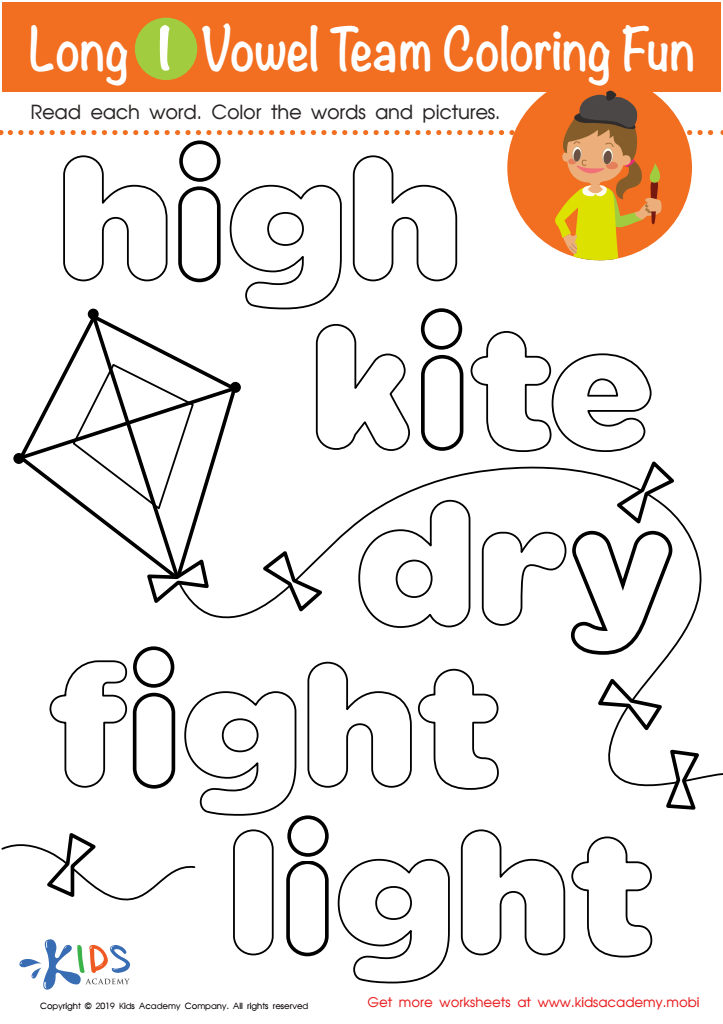

Long I Vowel Team Coloring Worksheet
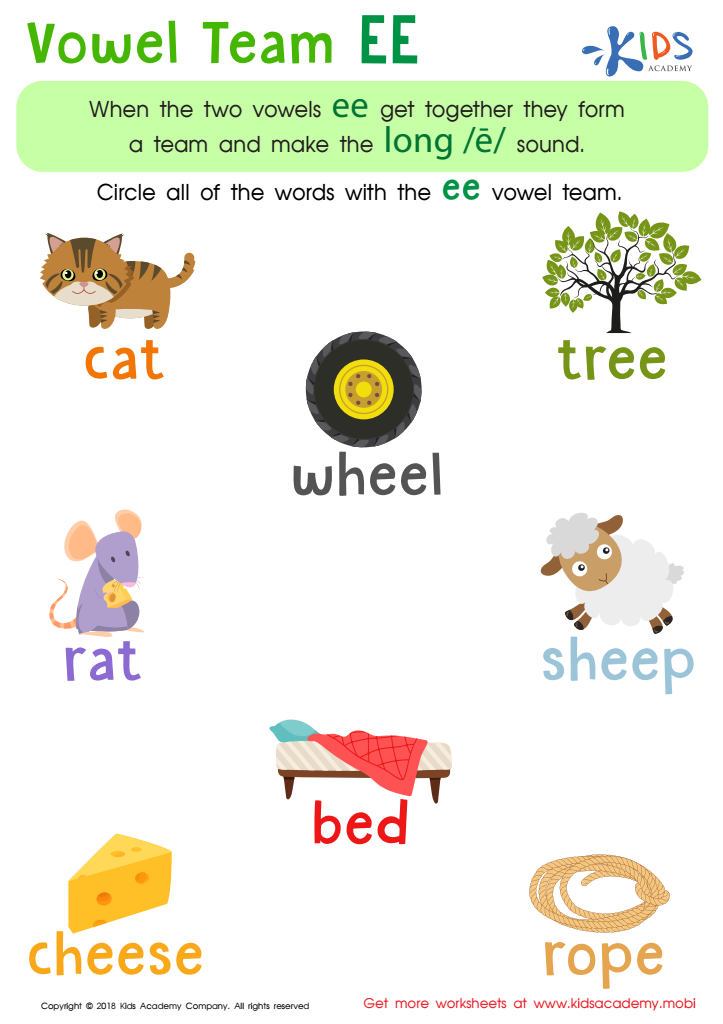

Reading: Vowel Team EE Worksheet
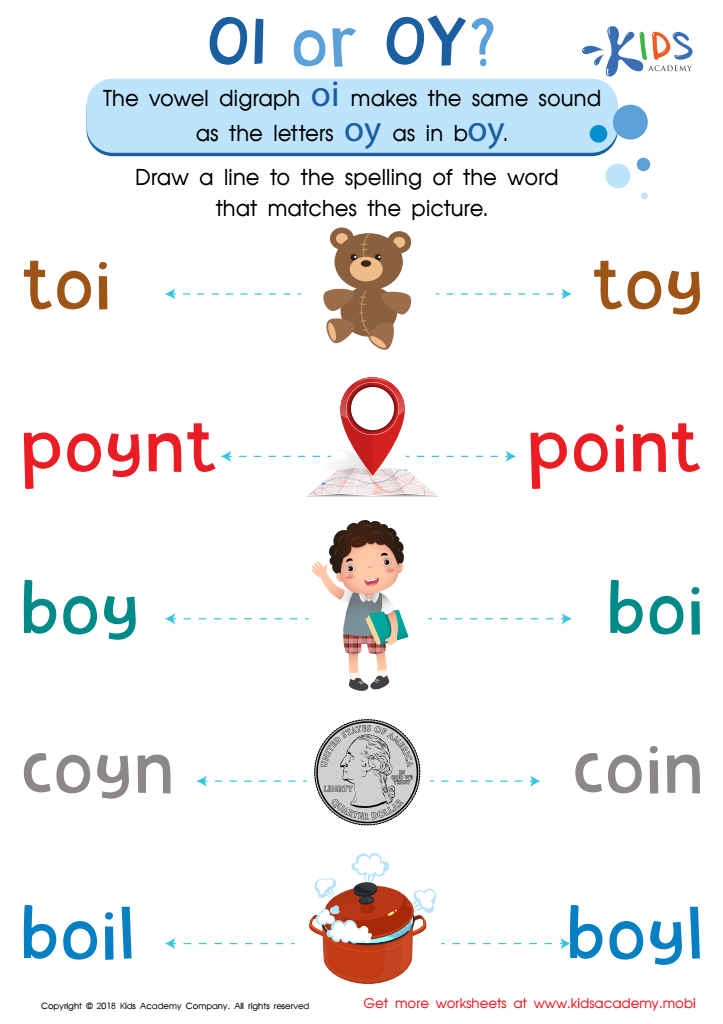

Reading: OI and OY Worksheet


Long and Short Vowel Sentences: Assessment Worksheet
Vowel recognition and phonics play a crucial role in the literacy development of children aged 7-8. During this stage of their education, kids are transitioning from learning to read to reading to learn. Proper understanding of vowels—both short and long sounds—enables them to decode new words, enhancing their reading fluency and comprehension.
For parents and teachers, fostering strong phonics skills is essential for building confidence in young learners. This age group often faces challenges in reading due to the complexity of the English language; understanding vowel patterns helps simplify these challenges. Children who master vowel recognition can more easily tackle unfamiliar words, allowing them to explore a wider range of reading materials.
Moreover, engaging with phonics during this developmental stage supports critical skills such as spelling and vocabulary acquisition. Teachers can incorporate playful and interactive methods to make learning enjoyable, while parents can reinforce these skills through reading together at home.
By prioritizing vowel recognition and phonics instruction, parents and teachers can create a solid foundation for literacy, leading to long-term academic success and a lifelong love for reading. Supporting this aspect of learning is not just an educational task; it is an investment in the child's future.
 Assign to My Students
Assign to My Students





















